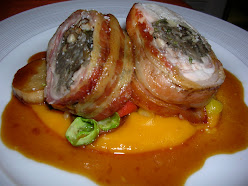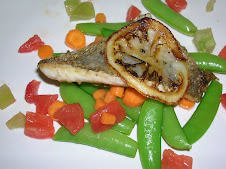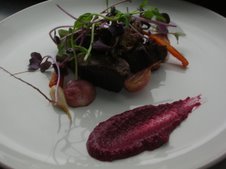
I recently finished reading Michael Pollan’s The Omnivore’s Dilemma, a book that investigates the roots of the food we eat. Pollan, also a journalism professor at Berkeley as well as a contributing writer to the New York Times magazine and author of The Botany of Desire has taken a keen interest in the intricate web that is our food chain. In forming this narrative, he travels all over the country and takes a look at different types of meals-- a fast food meal on the highway, a meal produced on a farm and a hunted and foraged meal in order to show us how food gets from where it is in nature (or sometimes the gray, desolate feedlots of the Midwest) to our plates. The story, told through a mix of Pollan’s personal experiences and supplemented with extensive research also discusses the economic, ethical and political issues that have shaped the way we eat in this country.
Although this book might not be the type of ethereal book that makes us want to eat, the kind normally associated with food literature, it is both a very interesting and important book about food. Pollan reminds us of our detachment from what we eat and provides us a context in which to analyze our own choices regarding what we eat. He also helps us take a step back and observe how what we choose to eat really affects the environment around us. Are the organic micro-greens and asparagus you buy at Whole Foods really safe for the environment? How did roughly one third of the ingredients (close to 40 in total) in my chicken nuggets come from corn? What does it feel like to kill and eat your own food? These are all questions that are answered within Omnivore’s Dilemma.
Another aspect of the book I found particularly interesting was some of the histories and back stories regarding many of the policies surrounding food. The history of corn (which if you didn’t know is in pretty much everything we eat these days) is as fascinating as the apocalyptic image of a cow awaiting its slaughter in a feedlot and being trained to eat corn (which it doesn’t eat) is horrifying. Pollan also shows us the beauty in the harmony involved in running a true farm and explores the debate over vegetarianism.
The Omnivore’s Dilemma is a very contemplative book that juxtaposes the author’s entertaining personal stories with factual information regarding just about every decision we make when we purchase food, cook it and eat it. Reading this book has changed the way I see the food chain and has already directly influenced the frequent choicesi make in buying food and deciding where to eat. These decisions, as the book points out, have roots much deeper than we can see.
























No comments:
Post a Comment